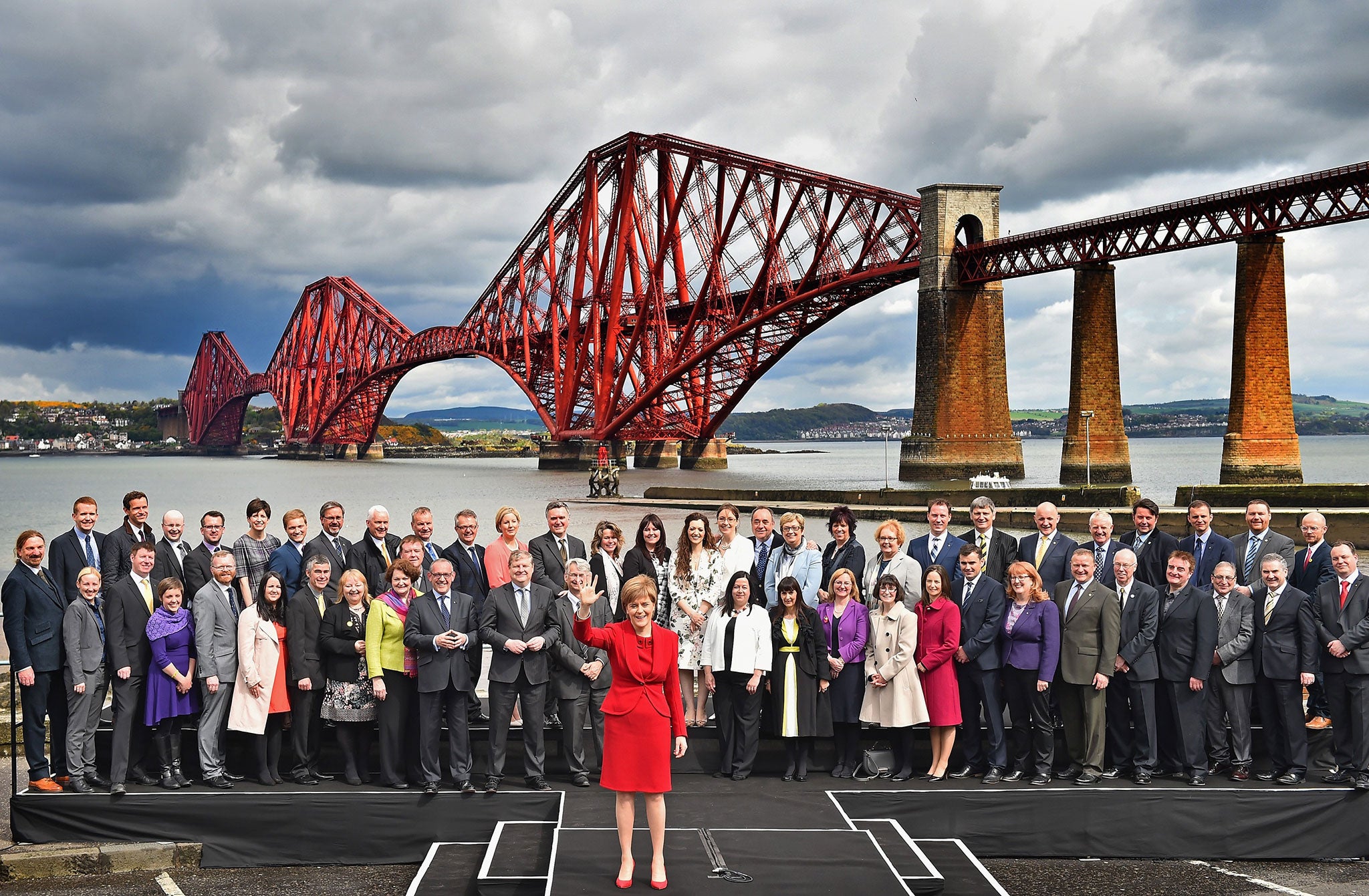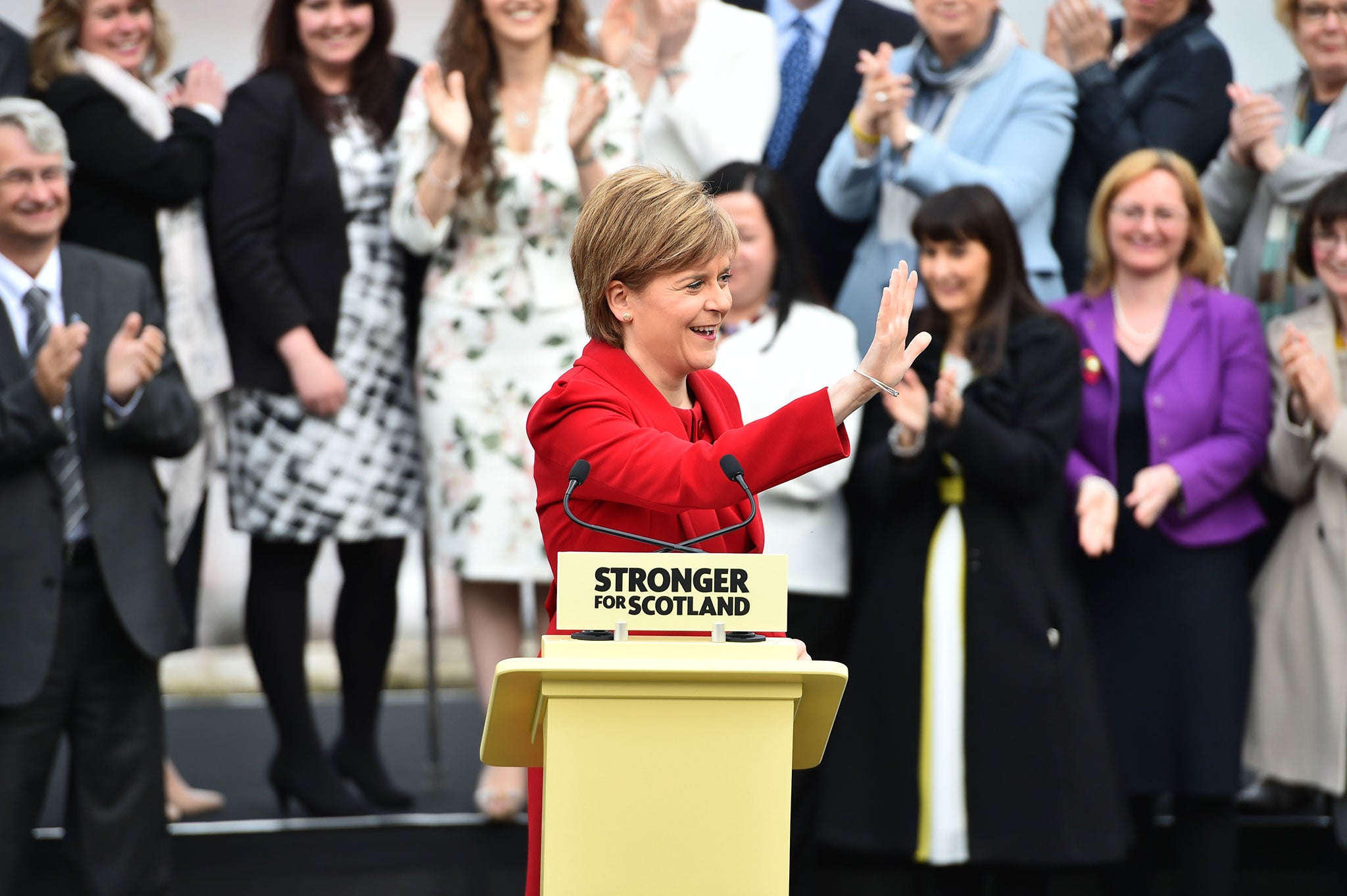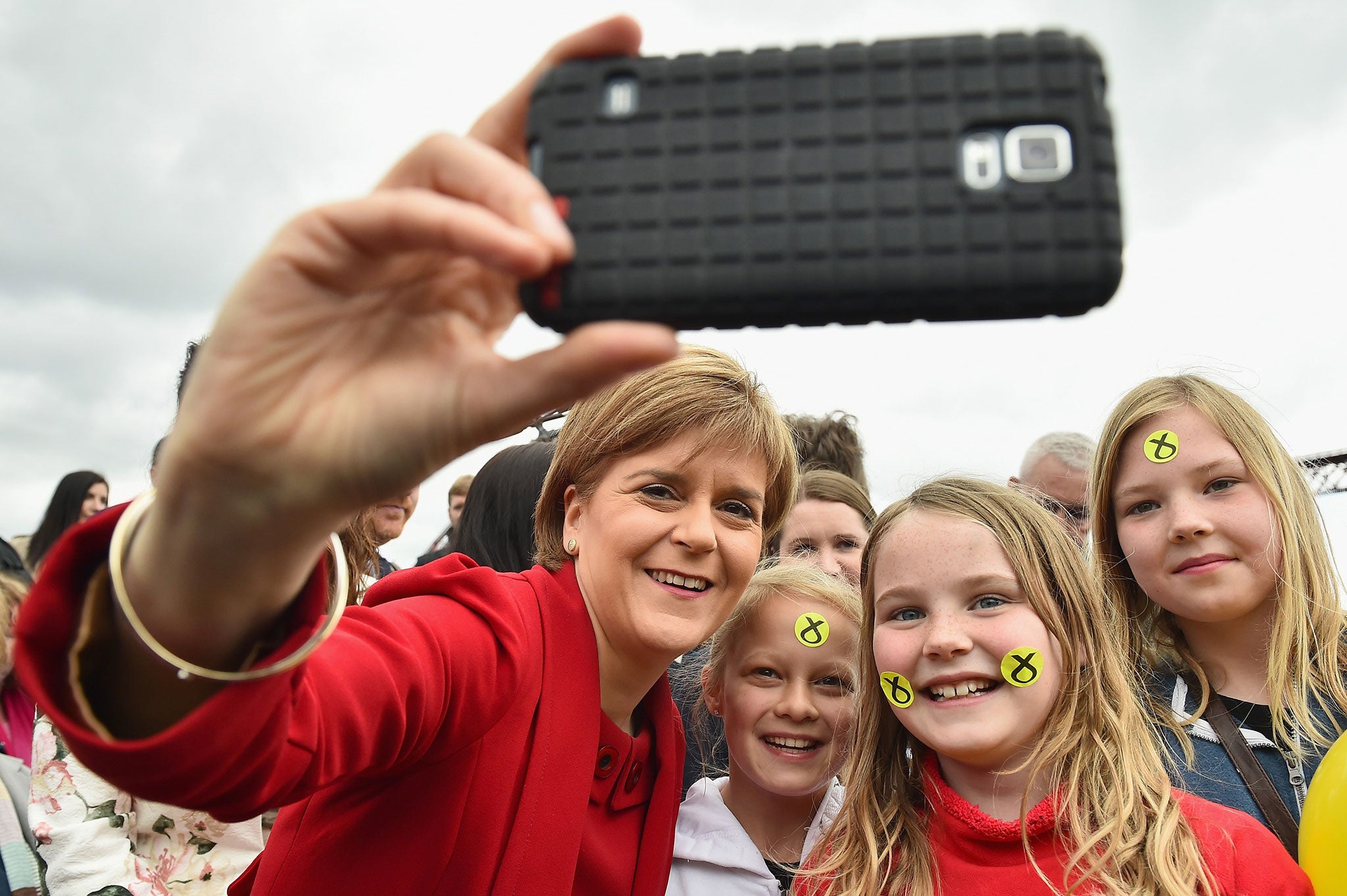Nicola Sturgeon introduces 56 SNP MPs: 'It simply cannot be business as usual'
SNP leader says 'Scotland this week spoke more loudly and more clearly than ever before'

Your support helps us to tell the story
From reproductive rights to climate change to Big Tech, The Independent is on the ground when the story is developing. Whether it's investigating the financials of Elon Musk's pro-Trump PAC or producing our latest documentary, 'The A Word', which shines a light on the American women fighting for reproductive rights, we know how important it is to parse out the facts from the messaging.
At such a critical moment in US history, we need reporters on the ground. Your donation allows us to keep sending journalists to speak to both sides of the story.
The Independent is trusted by Americans across the entire political spectrum. And unlike many other quality news outlets, we choose not to lock Americans out of our reporting and analysis with paywalls. We believe quality journalism should be available to everyone, paid for by those who can afford it.
Your support makes all the difference.The SNP has set itself on a collision course with David Cameron’s majority Conservative government over immediate demands for new powers for Scotland.
The nationalists’ deputy leader, Stewart Hosie, said the UK government must end the “bits-and-pieces” hand-over of power and deliver control of “all income tax”, all other taxes, all responsibility for welfare , and greater influence over business taxes.
His call was backed by the SNP leader, Nicola Sturgeon, who told The Independent on Sunday that despite her party’s newly elected group of 56 MPs lacking the numbers to influence votes in Westminster, she did not expect her call for enhanced powers – which go well beyond anything agreed since last year’s referendum – to be rejected by Downing Street. She said a warning had been given to David Cameron that it would not be possible for his new government “to act as if it was business as usual”.
Mr Hosie, who will head back to Westminster this week as MP for Dundee East, told the BBC that full fiscal autonomy, one of the key demands in the nationalists’ election campaign, needed to happen “within two or three years”.
He said the all-party deal on further devolved powers contained in the Smith Commission’s recommendations had been “watered down” and that it made sense for the Prime Minister to “act quickly” and give Scotland the means to “grow the economy, create jobs, and make it a fairer society”.
“Powers north of Smith” were needed, he said, and that meant it did “not make sense” for the Government to hand over anything less than all income tax, other taxes, welfare and business responsibility.

There is already confusion inside Mr Cameron’s Cabinet about what compromises can be offered to the nationalists after their near clean-sweep of Scotland’s 59 seats.
The Health Secretary, Jeremy Hunt, appeared to suggest that Holyrood would be given full control of Scotland’s finances. However Downing Street was forced to deny formally that any such offer had been made.
Constitutional experts have been lining up to point out that the representative imbalance between Scotland and the rest of Britain could fast-track the break-up of the UK.
Despite the arithmetic of the new House of Commons leaving the SNP unable to block legislation it does not like, or force through any of its own agenda, Ms Sturgeon’s insistence that her party will be not be sidelined or ignored suggests it has no intention of being another “Feeble 50”. That term of abuse was invented by Alex Salmond, the then SNP leader, in 1987 when he said the large group of 50 Scottish Labour MPs would be “feeble and ineffective” in combating the government of Margaret Thatcher.

Ms Sturgeon promised that the outcome of the election meant Scotland’s voice would be heard “more loudly than it ever has before”. She backed her deputy’s call for more powers, saying: “Our manifesto set out powers over the economy, business taxes, powers over employment like the minimum wage, and greater powers over welfare. Not for their own stake, but because these are the levers we need to grow our economy and get more folk into jobs, working and paying taxes to grow the revenues of the country.”
Asked what she could do if Mr Cameron and Chancellor George Osborne simply rejected such demands, she said: “I don’t expect the answer to be no, because Scotland has voted for a manifesto that had these issues at its heart.”
She said that during her brief discussion in London with Mr Cameron she reminded him that Scotland “voted for change and expects that call to be heeded”.
Although the SNP leader has serially refused to accept that the election result will lead to another referendum on independence before the end of this parliament, her ability to control such calls is already in doubt. Tommy Sheppard, the SNP’s newly elected MP for Edinburgh East, told the IoS that it would be “wonderful” to lose his new job after a second referendum.
Mr Sheppard said that if the “radical right” tried to freeze Scotland out of democratic processes at Westminster, he forecast the SNP would have to make “an assessment [about a second referendum].” He added: “The mood music is good and I hope we get what we want through diplomacy rather than conflict.”
Join our commenting forum
Join thought-provoking conversations, follow other Independent readers and see their replies
Comments